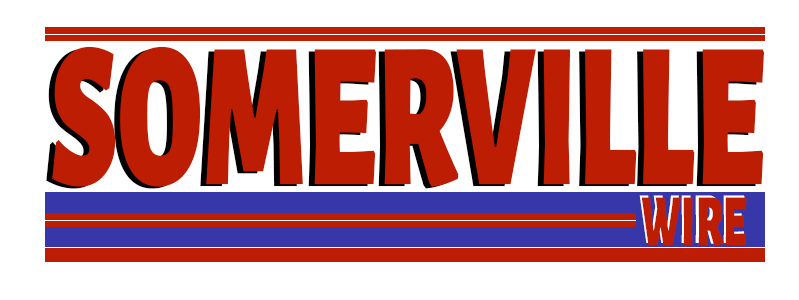Community members speak to the safety a facility could bring to the city.
(Somerville Wire) – Somerville may become the first city in the United States to get a supervised consumption site. According to a report released by the City in June, 2104 people died from an opioid related overdose in the state of Massachusetts in 2020. Massachusetts also has the eighth highest rate of overdose mortality in the country. City officials, doctors, and community members are hoping that by creating a place where people can take substances in a controlled, clinical environment, they may be able to help keep them safe.
“The important part around an SCS is the idea that this will keep people alive,” said Doug Kress, director of Health and Human Services for the City of Somerville. “It gives them an opportunity to have someone checking in with them. It helps build some of their own self-worth, self-identity, and build some of that self-confidence. It also gives them a pathway into recovery or into treatment.” He added, “It’s an opportunity so that people can stay alive. That’s number one. The next is that it gives them an opportunity to have access to those services … anything from medical supports, wound care, testing for STI’s or other types of illnesses. … But also it will give them someone who is checking in on them, as well. When you go in and register, someone is checking in on you. For some, that’s an important piece, because a lot of times, individuals who have been using, they may feel invisible.”
TJ Thompson, a member of a SCS task force created by the City that would meet once a month, explained that while he would personally not use an SCS right now, he would be interested in working at one. At one point in his life, Thompson had once been using Adderall in an unsanitary bathroom in California and almost lost his arm as a result. This memory led him to realize the importance of safety and cleanliness, as someone who had taken drugs.
“I once almost lost my entire arm,” said Thompson. “… I’m not sure how it happened—if it was the equipment I was using or the dirty bathroom that I was hiding in to use. I had an abscess, I had to take care of it, and it just grew, and grew, and grew. When I went to a hospital, they were going to put me in emergency surgery to amputate my arm immediately. That was one of the most horrifying things I have ever heard anyone tell me. Luckily, I have my arm. I have a very interesting scar. … Back then, when I was hiding in that bathroom—a dirty bathroom in California, in a parking garage, and people would knock on the door every five minutes—if there was a SCS to go to at that time, I definitely would have gone there, cleanliness over anything. I wouldn’t have been hiding.”
Kress explained that at the SCS, people would bring their own drugs in and would not be provided drugs by the facility. Individuals would have a chance to test their drugs to find out what they are actually composed of, making them more aware of what would be entering their bodies. They would enter the building, check in at a registration desk, and possibly move to a room where they would be able to sit and relax. People would have an opportunity to have one-on-one counseling or meet with a social worker or doctor. There would be little stations where they would use substances, under the supervision of a specialist. The City is still working to figure out what kinds of services people would want to use at the site, as well as a location.
Miriam Harris, a doctor at Boston Medical Center and assistant professor of medicine at Boston University, said that she does not believe the SCS will lead to a “honeypot effect.” She pointed to the example of a SCS in Canada, where people did not travel from far away solely to visit the site; studies have shown that individuals will usually travel no more than 5 miles to use the facility. The SCS would not promote addiction or contribute to the problem, as some have claimed.
“I would say that that is in the line that has been used with all harm reduction interventions historically, and the fear just hasn’t really borne out,” said Harris. “That is the same sort of logic that people use to resist the institution of syringe service programs, back in the 1990s. And we have now had syringe service programs in the United States for decades. There is no evidence that these, or SCSs, which have also been in operation in Canada, promote addiction, which is a disease. It doesn’t make sense that a safe, welcoming building would create a problematic use of the substance.”
Thompson said that it is not the SCS’ place to tell individuals what they should or should not do, but that it gives people a safe and supportive environment, while treating them with dignity.
“In harm reduction, we say we meet people where they’re at,” said Thompson. “Everyone is on their own road to wherever they’re going. Some people have plans for recovery. Some people have plans for abstinence. Some have plans for safer use. And that’s not for any of us to judge. That is for us to actually have this opportunity to facilitate all these things for anyone.”
This article is syndicated by the Somerville Wire municipal news service of the Somerville News Garden project of the Boston Institute for Nonprofit Journalism.
All Somerville Wire articles may be republished by community news outlets free of charge with permission and by larger commercial news outlets for a fee. Republication requests and all other inquiries should be directed to somervillewire@binjonline.org.
SUBSCRIBE TO THE FREE SOMERVILLE WIRE EMAIL NEWSLETTER: https://eepurl.com/hpBYPv
Check out all our social media here: https://linktr.ee/SomervilleWire.
Shira Laucharoen is assistant director of the Boston Institute for Nonprofit Journalism and assistant editor and staff reporter of the Somerville Wire.




